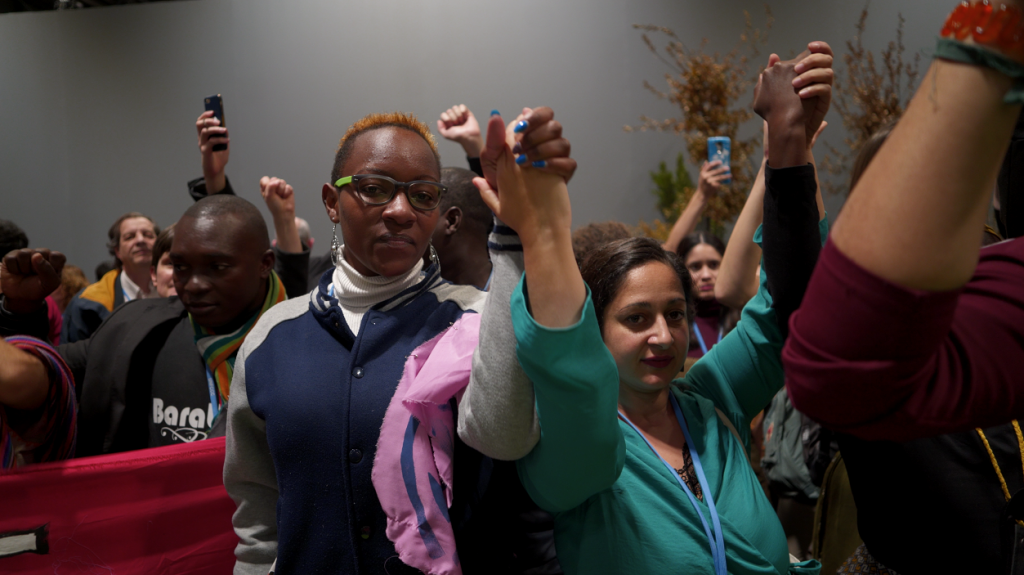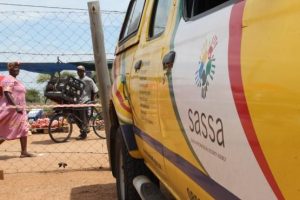- home Home
- keyboard_arrow_right CURRENT AFFAIRS
- keyboard_arrow_right Posts
- keyboard_arrow_rightCoP 25’s enhanced Gender Action Plan celebrated with caution over lack of monitoring
CoP 25’s enhanced Gender Action Plan celebrated with caution over lack of monitoring
By Tunicia Phillips
An overlooked victory at the widely criticized CoP25 climate conference in Madrid, Spain earlier this month; was a resolution to enhance the Gender Action Plan (GAP) over the next five years.

While countries failed to reach an agreement on important decisions that will ultimately affect millions of climate-vulnerable people, they agreed – at least on paper, to enhance plans to improve gender inclusivity in climate change-related activities. At 16:45 on December 12, the CoP presidency released what is called the ‘draft text’ for item 13, gender and climate change, which among other things,
“Recognised with concern that climate change impacts on women and men can often differ owing to historical and current gender inequalities and multidimensional factors and can be more pronounced in developing countries and for local communities and indigenous peoples,” it said. It also acknowledged the slow progress made in addressing the lack of representation in other climate level decision making bodies and party delegations at CoP.
Africa was first to take credit for the role the continent’s negotiators played in ensuring that climate justice and solutions are gender-inclusive. At the Africa Group of Negotiator’s (AGN) final media briefing before COP25 wrapped up with little for climate-vulnerable communities to celebrate (and 48 hours later than expected), outgoing chair, Egyptian Ambassador Mohamed Nasr said that gender was always one of their top agenda items.
“It was Africa who has been working on a language [text] that not only requests countries to do action on gender but to provide the financial resources for this gender action plan to happen, to be formulated and to be implemented.
“So the African proposal is focused more on the implementation of the GAP, I think Africa is fed up with too many planning (sic) and requests to do things without providing the adequate support for you to implement.
“You can have a very nice plan but if it’s not implemented nothing happens on the ground.
“So we linked the GCF (Green Climate Fund) finance for gender with the existing finance for the enhanced five-year work plan on gender.
“It was Africa who pushed for that, gender is one of our top priorities as the African Union on the Heads of States as well as the negotiators, and hopefully this will lead to implementation so we can see results on the ground,” Nasr said.
Mozambique has been credited for adopting the first-ever Environment and Climate Change Strategy and Action plan on gender in early 2010. Owing to the southern African country’s frequent extreme weather events and other climate impacts,
The overall objective according to the International Union for Conservation of Nature (IUCN) was to:
“… ensure national climate change efforts in Mozambique mainstream gender into policies, programs, and strategies so that both men and women have equal access to and opportunities and potential benefits from climate change response, improving the quality of life for the whole of the population.”
Some of the proposed examples in the plan include training local women in the collection of meteorological data used to assess the weather and climate; train local women in the use of low carbon technologies to generate income; as well as empowering women to take up leadership roles in forestry management. Ideally, these policies and CoP resolutions should manifest at the grassroots level for it to be effective. Implementation remains a challenge according to civil society groups. An assessment of cyclones Idai and Kenneth in Mozambique earlier this year revealed that the country showed weakness in preparation for high-intensity cyclones as a result of climate change.
The World Meteorological Organization said that their team identified, “major weaknesses on preparedness, emergency coordination, and response, including the lack of a back-up communication system for warning and emergency operations and an evacuation plan for cities, particularly in low-lying areas.”
Little information is available on how the gender policy impacted addressing the aftermath of the disasters. After including gender in their climate planning nearly a decade ago – reality on the ground shows that marrying CoP texts and policy with tangible impact in climate-vulnerable places are proving to be difficult.
Dr. Michael Charles at the Red Cross, however, made these observations about women in Africa and climate change-related disasters.
“I am always inspired by the women I meet responding in disasters, most recently in Cyclone Idai.
“Women like, Sonia, a volunteer who was working long hours to support women in a shelter, displaced by Cyclone Idai or Flora, who was affected herself by flooding but was dedicated to helping her neighbors rebuild their homes and their lives.
Dr. Charles wrote that climate change is undoubtedly a women’s business.
“They have a vested interest in avoiding and mitigating the impacts of climate change. It is time that humanitarian actors and policy and decision-makers mainstream gender in policy and practice.
“It is not a “nice to do”; it is crucial to making real and sustainable differences in the lives of affected people,” he said in an article published on Relief Web.
Margaret Arnold, a Senior Social Development Specialist with the World Bank spoke to a group of reporters on the sidelines of CoP25 and echoed the same sentiment. Her experience in disasters showed that these events are a good opportunity to change long term behaviors.
“I noticed that after every natural disaster that it was all the women who got organised, the women who knew who needed what and worked effectively and if you kept empowering that and nurturing that then it had broader developmental ripple effects long after the disaster and recovery process,” she said.
Reacting to the enhanced GAP resolution, women and gender groups commended the progress.
Gender CC International president and director for southern Africa Dorah Morama said that women are the majority of the world’s poor and due to inequality women are not able to participate meaningfully in climate change discussions, negotiations, and other activities.
Morama added that the GAP does not exist in a vacuum saying that it will fall flat if countries do not enhance or cut their greenhouse gas emissions.She also believes the GAP shortcomings lie with the lack of measurable targets to hold governments accountable.
“It doesn’t focus on implementation at the local level in terms of setting those measurable indicators and targets.
“However, with a strong civil society movement at the national level and on the ground there is an opportunity for civil society to demand a bottom-up approach where countries can set up indicators to measure impact on the ground,” she said.
The gender activist also blamed a male-dominated system for climate change and cautioned against appointing any women to delegations in the name of gender.
“By having women representation at the table doesn’t necessarily guarantee that the voices of grassroots women will be heard so for us it is very important to know who is at the table, who is sitting there because it could be someone who may not necessarily be a voice for the many women that are affected.
“For us, it’s important that we have gender experts at the table to make sure that these solutions devised at the UNFCCC processes are actually responding to the needs of these grassroots women,” she concluded.
Written by: Zuko
Similar posts
MORE ARTICLES

WATCH: American Artist, Lisa Shaw in SA for the Italian Elegant Xperience and working on a new album

The Kaya Countdown powered by Ackermans

Akon City project reportedly scrapped by Senegalese authorities

State to add more charges in Vusimuzi ‘Cat’ Matlala’s case

Temu launches first warehouse in South Africa
QUICK LINKS
UpComing Shows


The Hive
With Bonolo "Bee Sting" Molosiwa
Every "Hive" needs a Queen B and Bonolo "Bee Sting" Molosiwa is Kaya 959's honey who brings in the money. With her bubbly personality, infectious laugh, Bee Sting radiates positive energy which is all you need to get your weekend off to the best start. Don't miss the Afrobeat Dancehall Ragga (ADR) Top 10 on The Hive with Bee Sting every Saturday from 18h00 - 21h00.
close
The Hive
With Bonolo "Bee Sting" Molosiwa
Every "Hive" needs a Queen B and Bonolo "Bee Sting" Molosiwa is Kaya 959's honey who brings in the money. With her bubbly personality, infectious laugh, Bee Sting radiates positive energy which is all you need to get your weekend off to the best start. Don't miss the Afrobeat Dancehall Ragga (ADR) Top 10 on The Hive with Bee Sting every Saturday from 18h00 - 21h00.
close
Tune and Chill
with Tyroline Franks
Tune and Chill with Tyroline Franks on Kaya 959. Weekends, Saturday and Sunday, 15pm-18pm.
close
On the Beat
On the Beat with George Manyosi on Kaya 959. Saturday's, 18pm-21pm.
closeConnect with Kaya 959
DownLoad Our Mobile App
© 2025 Kaya 959 | On The Street On The Air









